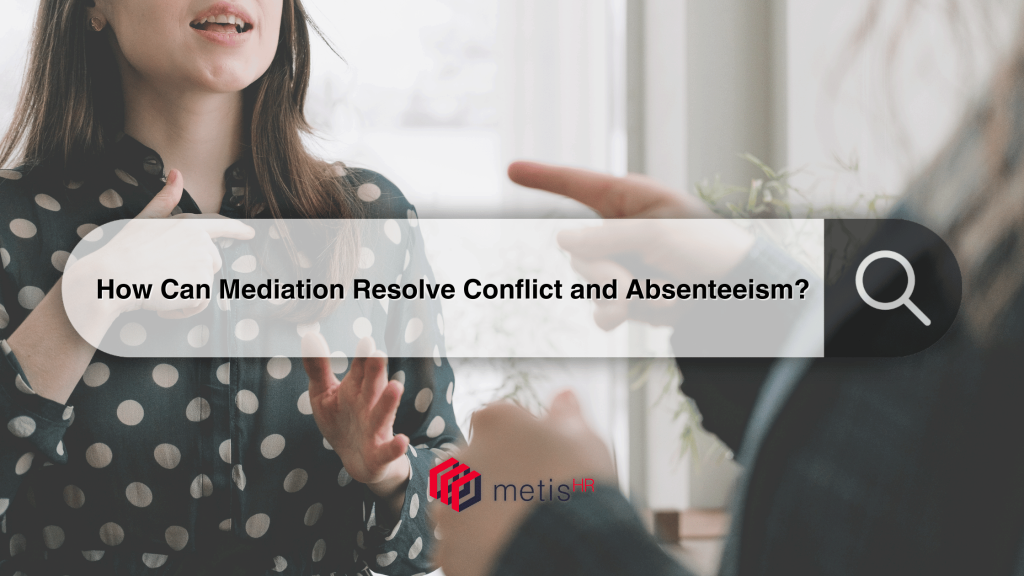Conflict significantly contributes to workplace absence and stress. Many business owners inquire about mediation’s role in resolving conflict and reducing absenteeism. It appears that if an organisation can cultivate a culture of conflict resolution, conflicts can be addressed proactively.

Rather than letting hostile situations deteriorate and possibly result in stress-induced absenteeism, it is advisable to implement a process that allows individuals in conflict to resolve their issues informally, quickly, and effectively.
An organisation can allocate time to train line managers in conducting difficult conversations, which many tend to avoid. This training can teach listening techniques and foster a culture of openness, dialogue, honesty, and integrity.
If conflict is already an issue in your organisation, considering strategies to deal with existing conflict may be beneficial to you. Mediation is a technique that can be a powerful intervention with a high success rate. It is a confidential, voluntary and informal process that allows members of staff in conflict to have open and honest discussions through a qualified mediator. It allows them to clarify the issues that so often lead to communication breakdowns and misunderstandings.
So, How Mediation Can Resolve Conflict and Absenteeism?
Mediation focuses on re-establishing a working relationship without the need of punishment or finding a victim or perpetrator and offers a safe environment in which to have a difficult conversation which focuses on resolving issues in a way that is mutually acceptable to the parties.
Both parties in conflict create the solution to the problem, own it and are responsible for it, so each party feels empowered that they are in a win-win situation.
Mediation is consensual, the results are sustainable and far reaching because you have dealt with the deep emotional issue rather than just the surface structure of the conflict.
Reasons for Conflict
Conflict can arise in organisations for many reasons. Just a few are:
- miscommunication
- misunderstanding
- cultural differences
- choice of language
- poor leadership
- ineffective management styles
- unclear roles and responsibilities
- a difference in personal standards
- fluctuating economic conditions
Besides, workplace issues creating conflict, individual personality types and personal issues add to the mix. These can create or exacerbate a conflict at work. Some personal, emotional issues that can make the conflict at work worse, like:
- personal problems at home
- marital issues
- cultural or gender differences
- family problems
- abrasive or submissive personalities
- some people are insensitive to others feelings and what may seem trivial to one person could be a huge issue for another
- personal disappointments in life
- unmet needs
- as well as a whole host of negative emotions. For instance, guilt, fear or jealousy over promotion
If Mediation sounds like the answer to your conflict issues call Paul on 01706 565332 or email info@metishr.co.uk and book your FREE consultation.


